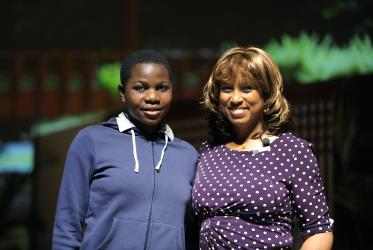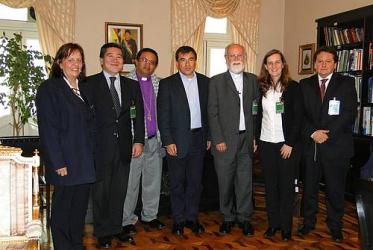Displaying 261 - 275 of 275
Dialogue on HIV, sexual reproductive health and rights
12 March 2014
Use of armed drones condemned by WCC
13 February 2014
Churches commemorate Week of Prayer for Christian Unity
24 January 2014
Issues of justice in focus at WCC Busan assembly
06 November 2013
WCC general secretary: military actions cannot bring peace in Syria
04 September 2013
WCC expresses condolences at death of Brother Jeffrey Gros
13 August 2013
Churches engage in development dialogue on Africa
06 March 2013
Working for climate justice is an ethical and spiritual imperative
27 February 2013
Statement on global economy delivered to Bolivia
15 January 2013
Brazilian youth advocate for peace in Palestine at WSF
12 December 2012






